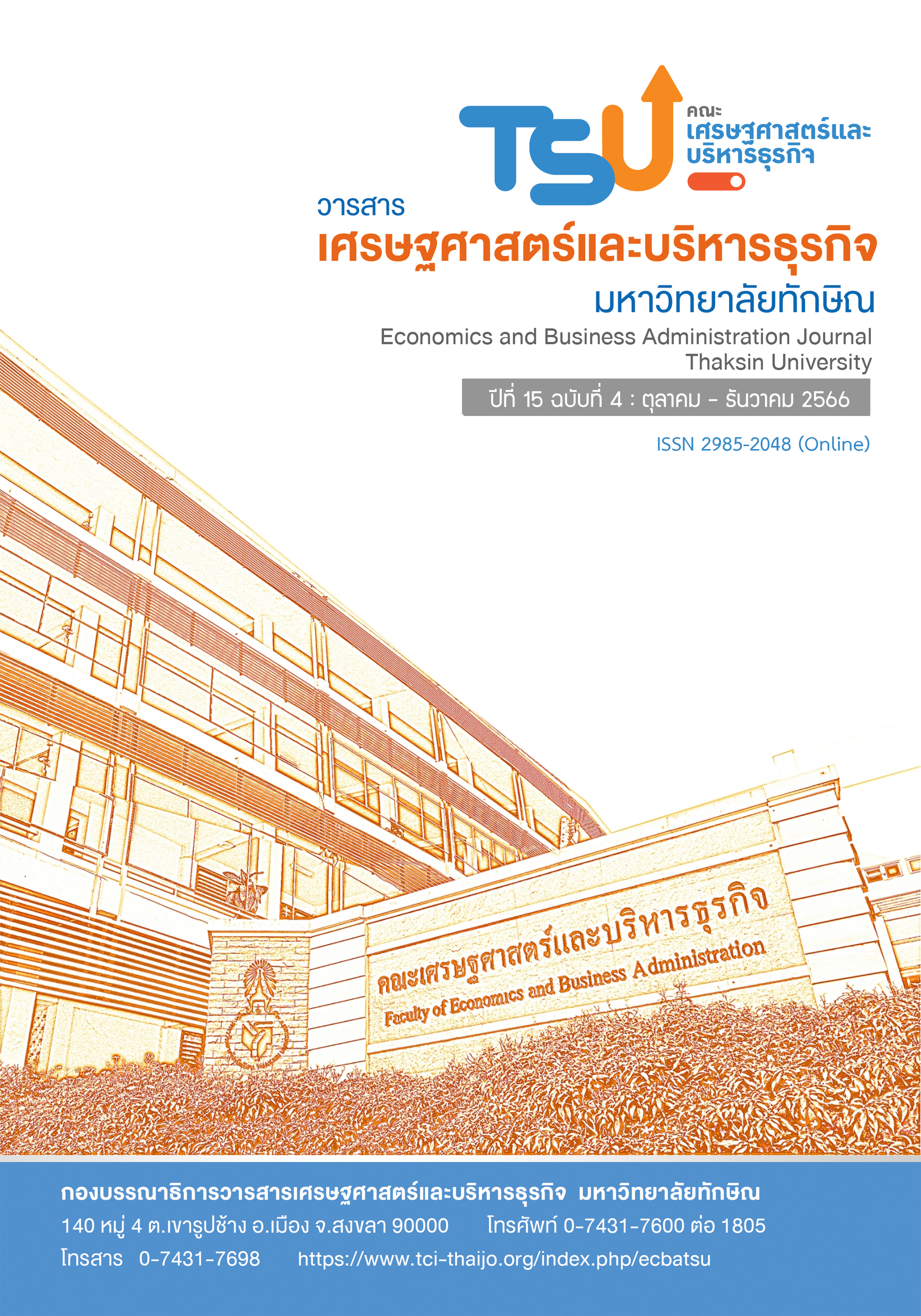Guidelines for Solving Debt Problems by Applying Information System for Financial Institutions in Ethnic Communities in the Northern Special Economic Corridor Area
DOI:
https://doi.org/10.55164/ecbajournal.v15i4.260969Keywords:
Information System, Ethnic Groups, Northern Economic Corridor, Debt ProblemAbstract
The purposes of this study were to develop the information system for community financial institutions for information management of Kae Noi Royal Project cooperative members and to get the guidelines to solve debt problems by applying the information system of financial institutions in ethnic communities in the Northern Economic Corridor Area. The semi-structured interview was used in this study. The population and sample, totaling 60 samples, were under the target group qualifications of the Equitable Education Fund (EEF), which were selected using the purposive sampling method and they must volunteer in providing their information. The results showed that most of the group members were farmers, who borrowed from the cooperative for not more than 25,000 Thai baht per person on average. Most of them invested in agriculture in each production cycle for the cost of fertilizer, weed control, prevention and elimination of diseases, insects and pests. The loans were without collateral, and most of the household debt was borrowed from the village fund and the family. The Covid-19 pandemic resulted in an average 85% loss, and the debt also increased. The guidelines for solving debt problems should focus on the four financial skills for financial stability and life planning using the wheel of the cycle and the nine skills. The guidelines for the cost reduction and value-added generation in crop production will generate income for the non-agricultural sector from processing and reducing production costs, by using waste to generate income and reducing costs from using chemicals. This will affect the better quality of life of the farmers by reducing debt, increasing income, planning production, promoting financial and food security.
References
Bank of Thailand. (2021). Financial Literacy. Retrieved August 18, 2021, from: https://www.bot.or.th/Thai/PressandSpeeches/Press/2021/Pages/n7764.aspx.
Committee on Agriculture and Cooperatives. (2021). Impacts on the Thai Economy from Coronavirus Disease (COVID-19) and Recommendations for Driving the Development of the Agricultural Sector under the National Strategic Plan According to the Situation. Bangkok: Secretariat of the Senate.
Davis, Gordon B., & Olson, Margrethe H. (1985). Management Information System: Conceptual foundation, structure, and development. New York: McGraw-Hill.
Equitable Education Fund. (2021). Community-Based Innovation and Career Development Scholarships Year 2021. Available: https://www.eef.or.th/fund/community-base-2564. [11 August 2021].
Gerrity, T. P., Jr. (1971). The Design of Man-Machine Decision Systems. Sloan Management Review. 12(2), 59-75.
Information Center of Knowledge, Local Wisdom and Community Innovation, (Social Enterprise). (2022). Information System for the Management of Community Financial Institutions. Equitable Education Fund: Bangkok.
Jaichomphu P., & Jewpanya P. (2021). The Study and Analysis of the Organic Jasmine Rice Production Process for Pricing in the Gasayt Paan Suek Agricultural Community Enterprise Taluk Klang Thung Sub-district, Muang Tak District, Tak Province. Journal of Agri. Research & Extension, 38(2), 107-118.
Kae Noi Royal Project Cooperative. (2020). Annual Report Year 2020. Chiang Mai: Kae Noi Royal Project Cooperative.
Laudon, K.C., & Laudon, J.P. (2002). Management Information System: Organization and Technology. (3rd ed.). New York: Macmillan.
Lawson, B., & Samson, D. (2011). Developing Innovation Capability in Organizations: A Dynamic Capabilities Approach. International Journal of Innovation Management. 5(1), 377-400. DOI: 10.1142/S1363919601000427
Noknoi, C. (2022). Guidelines for Self-Development of SMEs Entrepreneurs to the New Normal. Economics and Business Administration Journal, Thaksin University. 14(2), 83-106.
Office of the National Economic and Social Development Council. (2020). Report on the Results of Economic and Social Development of the Country. Bangkok: Office of the National Economic and Social Development Board.
Paisarn K. (2014). Development of Information System for Enhancing the Competitiveness of Home Stay. KMUTT Research and Development Journal, 37(4), 503-515.
Pongwiritthon R., & Utama-ang S. (2010). The Management of Small and Medium Enterprises to Achieve Competitive Advantages Northern of Thailand. Journal of management sciences, 28(1), 49-63.
Seangyai K., & Wisutthirattanakun S. (2021). The Achievement of the Sustainable Development Goals for the Development of Thailand. Rajapark Journal, 15(43), 14-24.
The Chaipattana Foundation. (2021). Around the World with Chaipattanl. The Chaipattana Foundation Journal. 64(3). 52-57.
Downloads
Published
How to Cite
Issue
Section
License
Copyright (c) 2023 Faculty of Economics and Business Administration, Thaksin University

This work is licensed under a Creative Commons Attribution-NonCommercial-NoDerivatives 4.0 International License.




